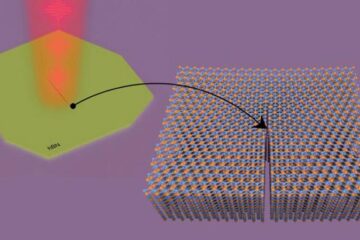Researchers Share Discoveries About Aging-Related Changes in Health and Cognition

There also is an emerging consensus that a multidisciplinary theoretical approach is necessary to understand the nature of the processes of cognitive aging. Thus, the studies presented in the issue represent the work of scholars in the areas of biology, epidemiology, demography, developmental psychology, gerontology, neuropsychology, and sociology.
“Knowledge of the relationship of aging to health and cognitive function is crucial to the understanding of the linkages between age-related socioeconomic, racial/ethnic, gender, and health disparities,” state Guest Editors Duane F. Alwin, PhD, and Scott M. Hofer, PhD.
Among the issue’s findings:
For many cognitive abilities, the declines associated with aging do not manifest themselves until after age 75.
High school class rank has a much larger effect than on survival than IQ across the lifespan.
The progressive substitution of mechanical power for human physical activity is undermining the physical fitness needed to preserve cognitive function.
Greater social contact and support are associated with better cognitive functioning, whereas greater conflict is associated with lower cognitive functioning.
Diseases either caused by or associated with aging — particularly vascular changes — play a larger role in age-related cognitive changes than is often acknowledged.
This collection of articles, titled “Cognition, Health, and Aging: Integrating Perspectives Across Disciplines,” is based on papers presented at a conference held at Penn State University in 2009. Funding for the supplemental issue was provided by the National Institute on Aging through the resources of the Center on Population Health and Aging at Penn State University, and the National Academies Keck Futures Initiative grant, Health and Healthspan in Longitudinal Studies of Aging.
The Journals of Gerontology Series B: Psychological Sciences and Social Sciences is a refereed publication of The Gerontological Society of America (GSA), the nation's oldest and largest interdisciplinary organization devoted to research, education, and practice in the field of aging. The principal mission of the Society — and its 5,400+ members — is to advance the study of aging and disseminate information among scientists, decision makers, and the general public. GSA’s structure also includes a policy institute, the National Academy on an Aging Society, and an educational branch, the Association for Gerontology in Higher Education.
Media Contact
More Information:
http://www.geron.orgAll latest news from the category: Health and Medicine
This subject area encompasses research and studies in the field of human medicine.
Among the wide-ranging list of topics covered here are anesthesiology, anatomy, surgery, human genetics, hygiene and environmental medicine, internal medicine, neurology, pharmacology, physiology, urology and dental medicine.
Newest articles

Attosecond core-level spectroscopy reveals real-time molecular dynamics
Chemical reactions are complex mechanisms. Many different dynamical processes are involved, affecting both the electrons and the nucleus of the present atoms. Very often the strongly coupled electron and nuclear…

Columbia researchers “unzip” 2D materials with lasers
The new technique can modify the nanostructure of bulk and 2D crystals without a cleanroom or expensive etching equipment. In a new paper published on May 1 in the journal…

Decoding development: mRNA’s role in embryo formation
A new study at Hebrew University reveals insights into mRNA regulation during embryonic development. The study combines single-cell RNA-Seq and metabolic labeling in zebrafish embryos, distinguishing between newly-transcribed and pre-existing…





















